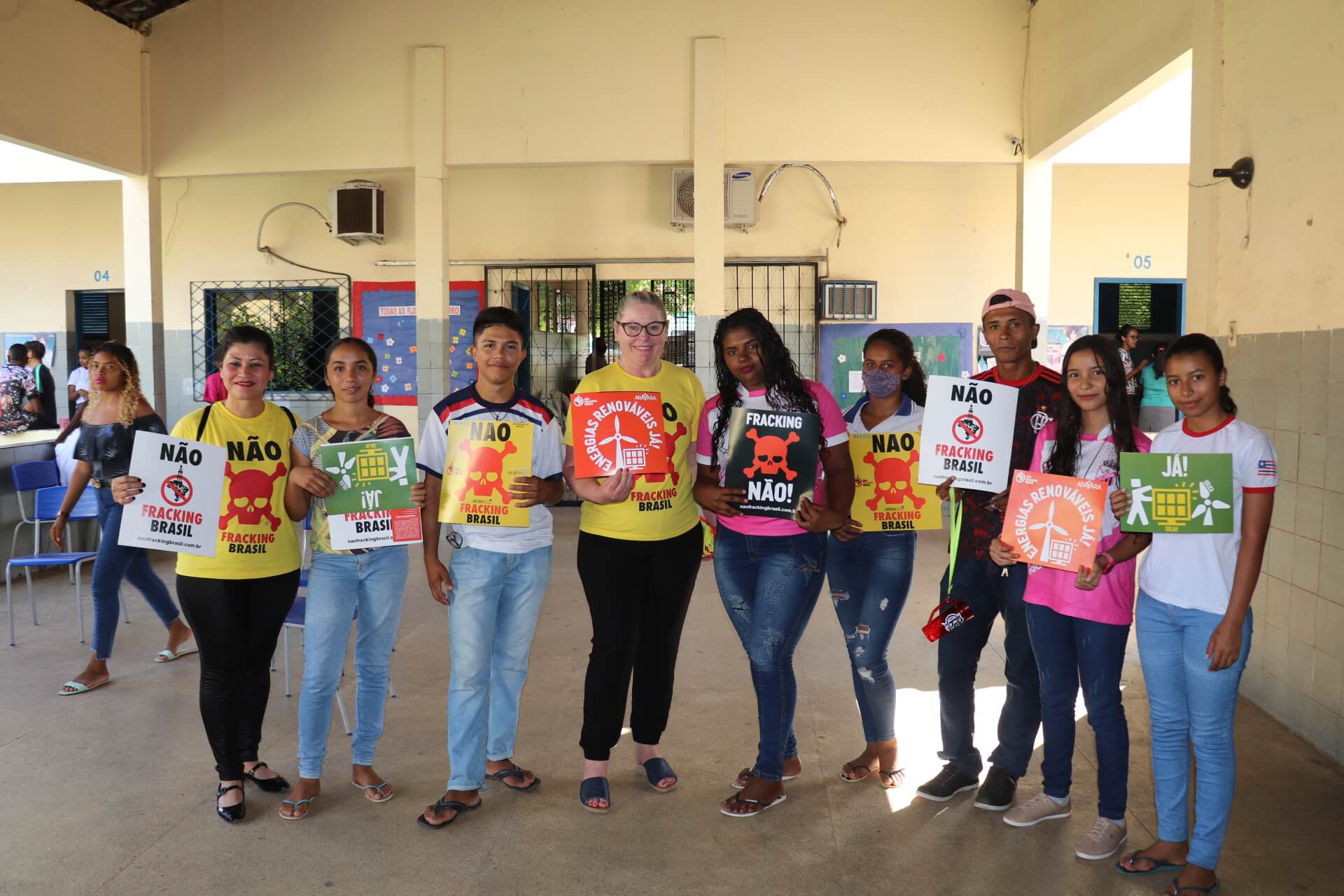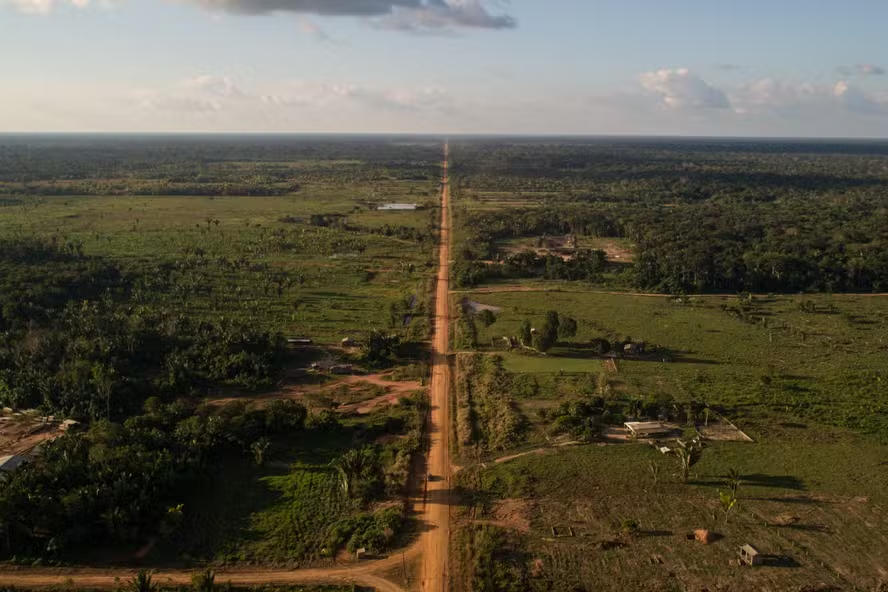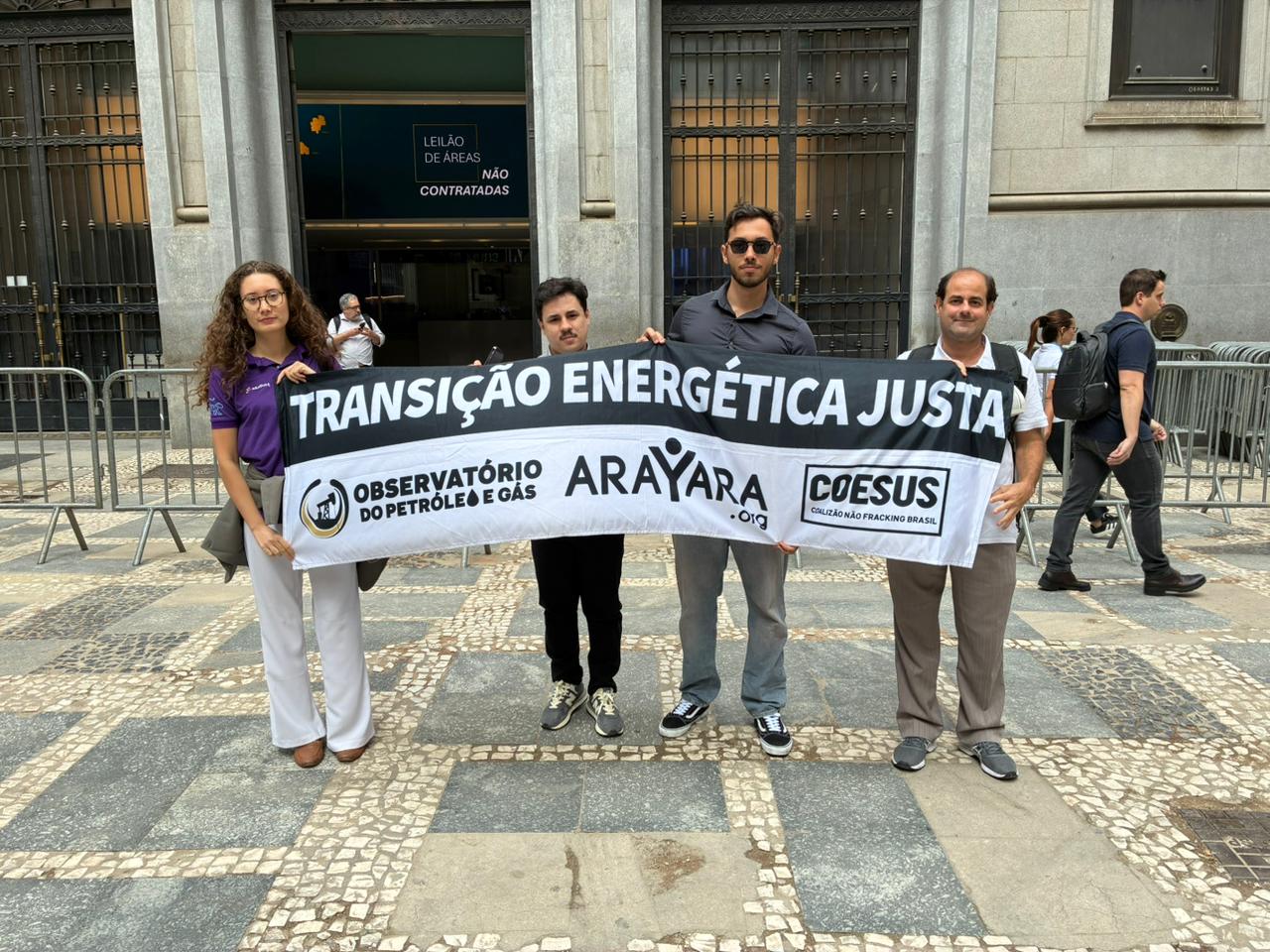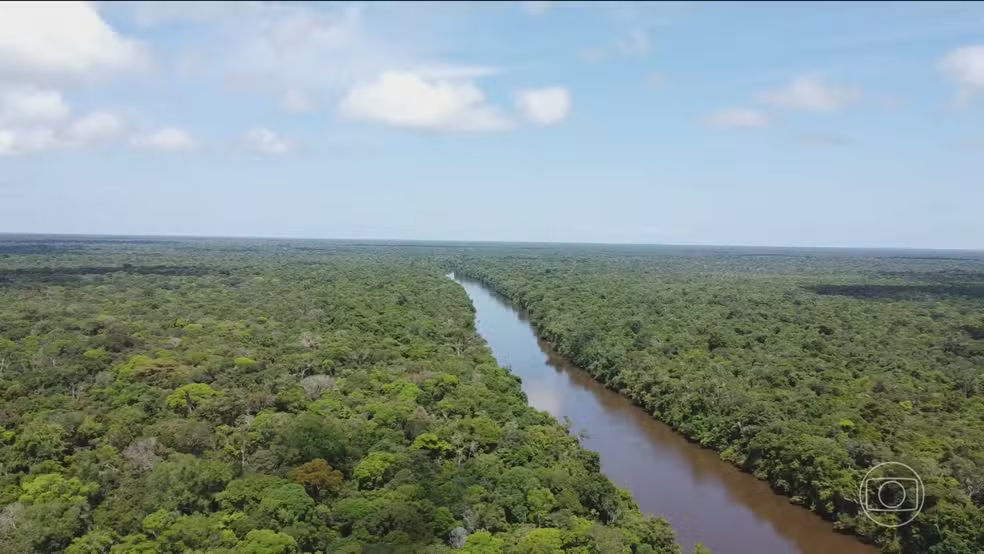President of the city council committed to combating fracking in the region
What is fracking?
Fracking – also known as hydraulic fracturing – is a process that involves injecting large volumes of water, chemicals, and sand at high pressure into underground rock layers to release trapped natural gas. Although it is a technique already used in several countries, it is controversial due to its environmental and ecological damage, including groundwater contamination, release of greenhouse gases, induced earthquakes, and more.
The No Fracking Brazil campaign (ARAYARA.org and COESUS – Coalition No Fracking Brazil for Water and Life) visited the municipality of Matões, Maranhão, on September 5, 2022, to expose the harmful effects of hydraulic fracturing to the local population. After the action, the residents of the region began supporting the campaign and stated that they will not allow fracking on their lands.
Matões was one of the first municipalities visited by COESUS – Coalition No Fracking Brazil for Water and Life. The rural workers’ union of the city participated in a training session with the theme “Fracking: a threat to agriculture and the future of Brazil” and expressed opposition to shale gas exploitation. The workers present at the event volunteered to continue informing and raising awareness among the other union members. Rural production is one of the most affected by the contamination of soil, air, and water caused by this unconventional technique.
COESUS delivered a lecture to the city council of Matões on the main health risks associated with fracking. The event was attended by the municipal health secretary, the municipal attorney, the president of the city council, and some city councilors, all committed to the well-being of the population.
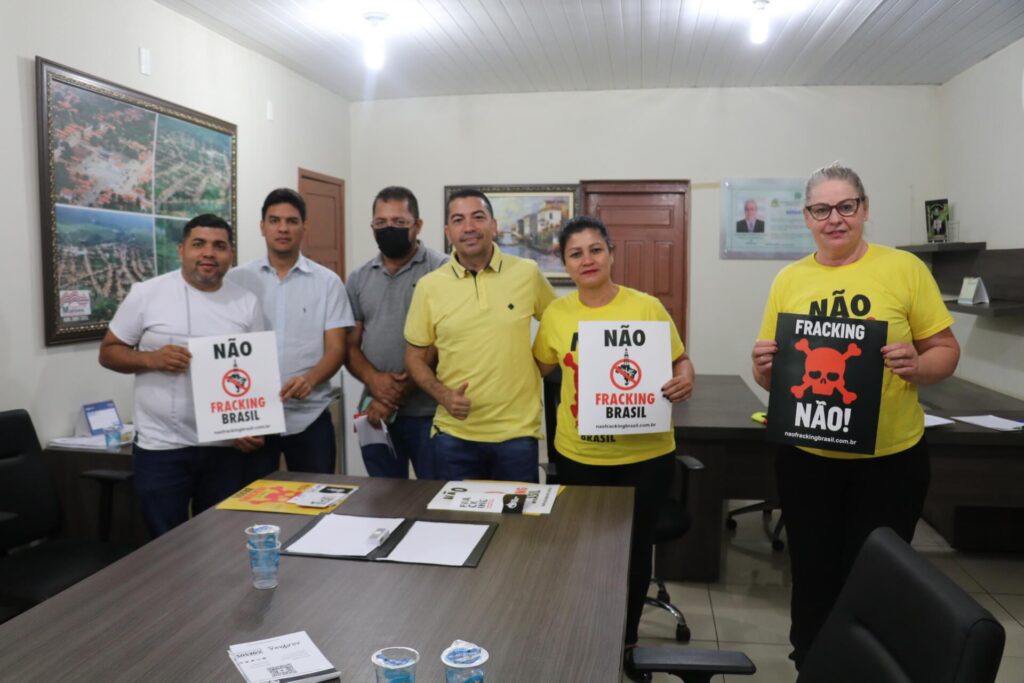
Coalition No Fracking Brazil with councilor Thyago Morais de Brito in Matões/MA
The president of the city council, Thyago Morais de Brito, received the campaign team against fracking in his office to express his support for the initiative and stated that fracking will not be allowed in the municipality of Matões. Brito announced that he would present a bill to ban fracking in the council and take all necessary actions to block the method in the municipality.
COESUS understands that youth are crucial for the conservation of the planet. Education in schools is important to convey information to young people about the consequences of fracking. Therefore, a training session was held for over 130 students at Eugênio de Barros School, addressing the harms of fracking to the city.
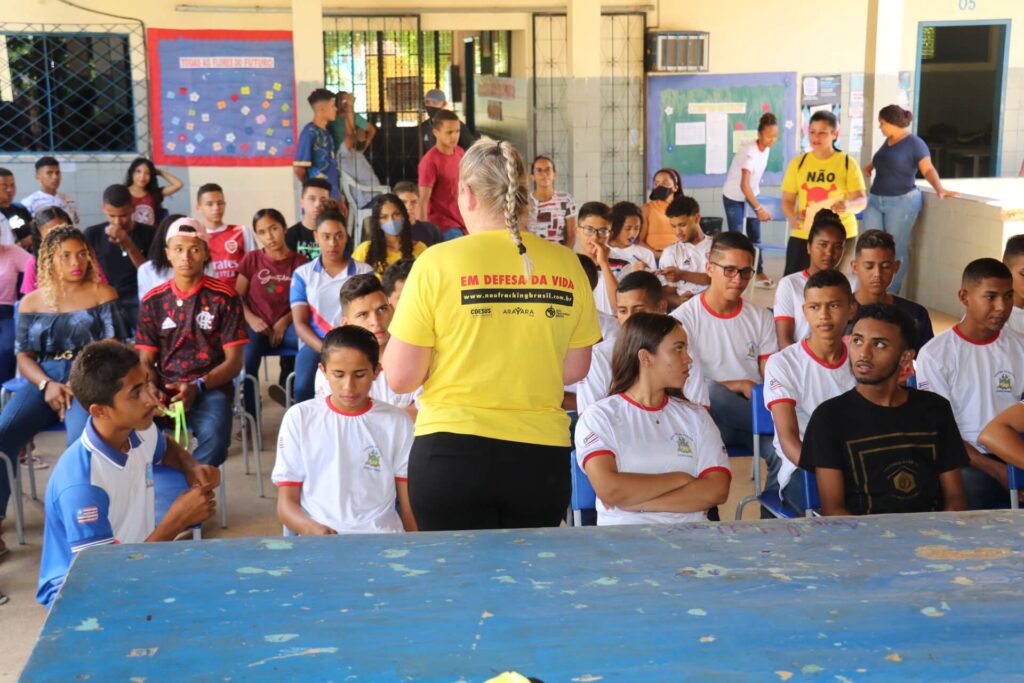
Coalition No Fracking Brazil with councilor Thyago Morais de Brito in Matões/MA
The “No Fracking Brazil” campaign works to raise awareness among the Brazilian population about the risks of the method and puts pressure on the government to prevent shale gas exploration in the country. The campaign’s main actions include disseminating information about the effects of fracking, organizing protests and demonstrations, and engaging politicians and public authorities in the debate on the subject.

